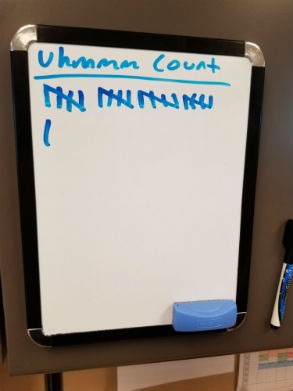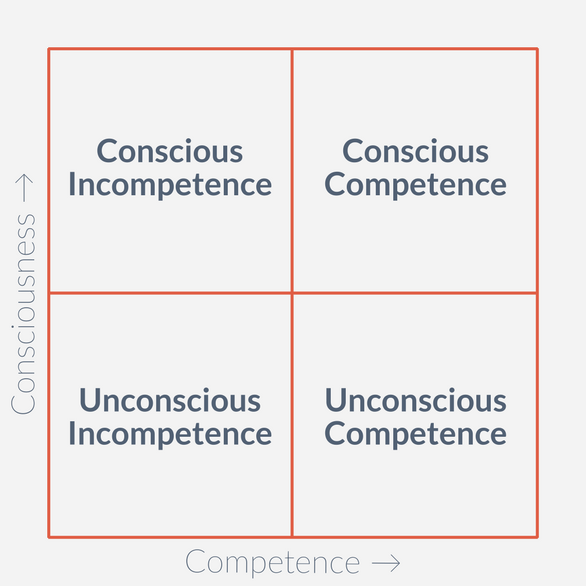Effective Sales Coaching Conversations
My friend Ed Porter posted the below sales coaching conversation on LinkedIn. He graciously allowed me to reprint it here to showcase how to develop your sales skills and change human behavior through conversation intelligence.
Fellow coaches and leaders…proud coaching moment right here!!
In a call review this morning with an SDR, I asked how he thought the call went. His first response was that it sounded odd and he used “um” a lot (which we are all guilty of). I referenced this back to his first week on the job where I said as soon as you hang up the phone I want you to think, “I should have said X” or “I forgot to do Y.” Not only does that set up a great follow up call, but it’s also the first step toward coaching yourself. I tied this back to using the word “um” and applauded him for recognizing this. I said this improvement won’t happen overnight, but we will start paying attention to this during his weekly call coaching sessions.

Later on, I walk out near his desk and see this beauty hanging up (see the picture of the whiteboard). He said he wanted to pay more attention to this and wants to be more aware of it. He said that he’s recognizing it within himself, but also in others. He’s having a competition with the coworker next to him and they are making a game out of it. I told him this was awesome and walked back to my office with the biggest smile on my face. Love seeing people flourish and grow!!
What a beautiful sales coaching conversation that illustrates how important conversation intelligence is and how difficult creating human behavior change can be.
This reminds me of a sales coaching lesson I learned along the way in my career about moving people from unconscious incompetence to conscious competence. That’s a mouthful. The concept is actually very simple to understand and it is a great answer to the question of how to develop your sales skills.
The Concept of Moving From Unconscious Incompetence to Unconscious Competence

Unconscious Incompetence
The rep doesn’t know why they’re bad. They lack conversation intelligence and are blind to why they work hard yet their performance is lower than their peers.
Conscious Incompetence
The rep is aware of why they’re bad. Awareness is the first step towards creating behavior change (followed by the will to change).
Conscious Competence
The rep knows why they’re good. This is the desired state because the rep can more easily recognize their own bad behavior and self-correct (which makes your job as their manager much easier).
Unconscious Competence
The rep doesn’t know why they are good. This is the most dangerous state because their good performance is likely streaky and unpredictable. As a manager, you also don’t know how to leverage what they do to be successful when onboarding new reps. You hire people, set them loose, and cross your fingers. Scary.
Using the Unconscious Incompetence to Unconscious Competence Framework:
Step 1. At first, the rep is unconsciously incompetent. He doesn’t know why he’s struggling. He and Ed sit down to do a call listening session. Ed asks the simple question: “How did the call go?” In effective sales coaching conversations, less is more. Ed, a consciously competent sales coach, asks the right question. Read the book, The Coaching Habit, for some great effective sales coaching questions.
Step 2. Because the rep can observe his own performance, he is quickly able to spot the ‘um’ problem that’s inhibiting his conversation intelligence with buyers from converting. My friend Keenan wrote an excellent article on the power of observable moments in creating human behavior change. This is the critical moment when the rep moves from unconscious incompetence to conscious incompetence.
Step 3. The rep sits back down at his desk determined to improve their conversation intelligence and move from incompetence to competence for overusing the filler word ‘um’. Here’s where the effective sales coaching magic happens. The rep puts up a whiteboard at his desk to tally when he says the word ‘um.’ One of his colleagues does the same. The two peer sales reps, without Ed forcing this, decide to make a contest of it. Little do they know, but these two reps stumble upon the most important factor in making behavior change stick – something called The Habit Loop. Behavioral scientists tell us that every habit has three parts: the cue, the routine, and the reward. The clever sales reps use the whiteboard on their desks with the tallies as the cue. They change the routine from saying ‘um’ to being reminded not to say ‘um.’ Finally, they make it a contest for bragging rights which acts as the reward. It’s genius. (And I’m guessing they were unconsciously competent regarding the new Habit Loop they created for themselves up until this moment).
Step 4. The reps repeat this habit loop over and over and over. In the process, they get nights of sleep along the way. It turns out that sleep is the critical factor to move short term memories to long term memories. Through repetition of the habit loop, the reps literally changed their brains. The filler word ‘um’ is eradicated from their vocabulary. And they will remain in this state of conscious competence for the rest of their lives. They have effectively re-wired their neural pathways in their own brains (see this NBC News article for more on the science). The new behavior is hard-wired.
So there you have it. Who knew a nice story about two sales reps and a great sales coach would be loaded with so many lessons from brain science, behavioral science, etc.
And think back to the title: how conversation intelligence aids in human behavior change for effective sales coaching. How might the story be different if the rep didn’t have the opportunity to observe himself? What if he didn’t have the space from the sales coach to reflect and discover? How much easier is it to measure the ums using conversation intelligence? How can the coach provide feedback asynchronously through sales coaching conversations to provide more rewards?
What effective sales coaching techniques do you use to foster human behavior change?What do you do as a sales coach to foster human behavior change?


